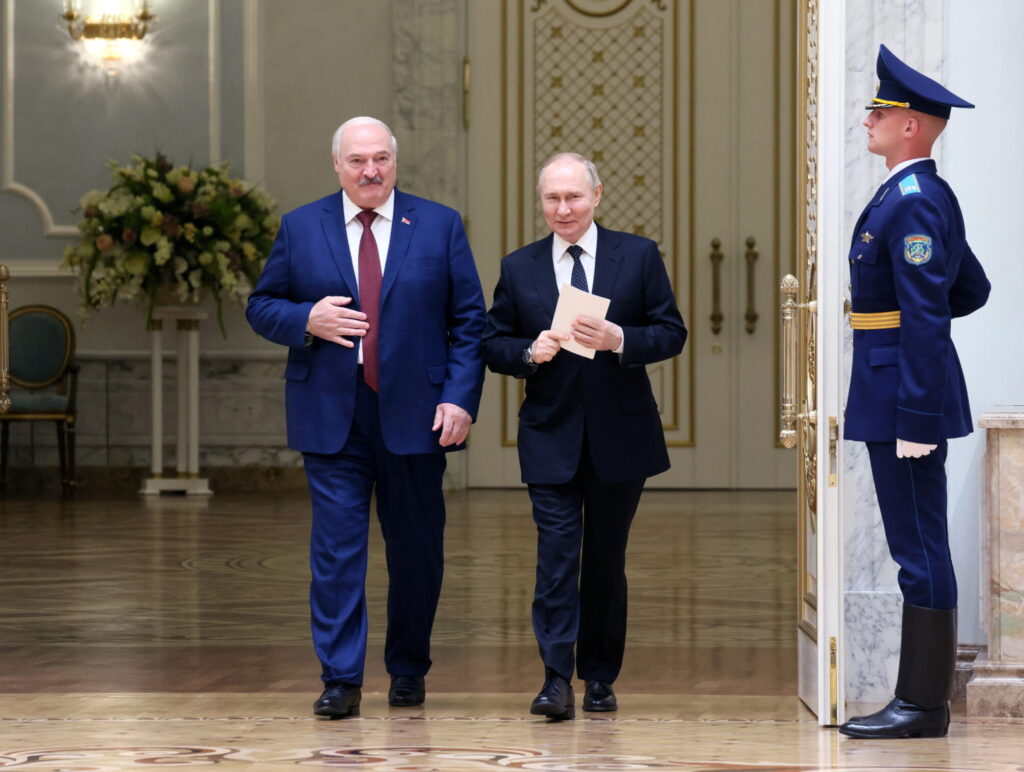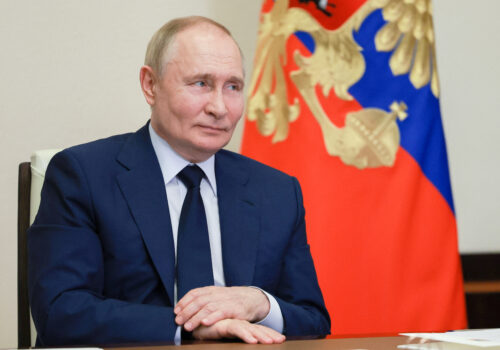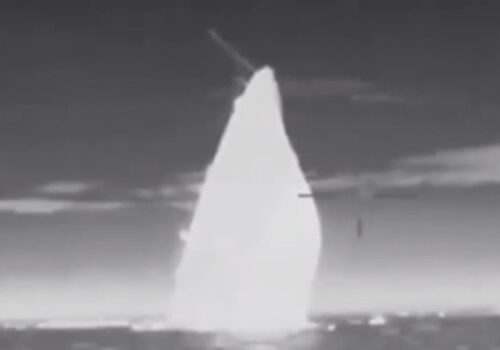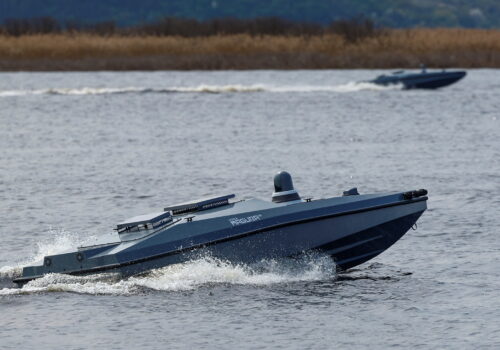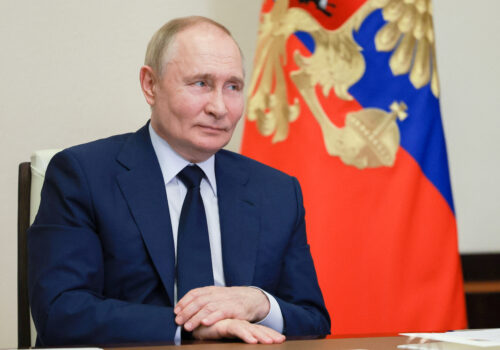
The West should articulate the possibility of a European future for Belarus now
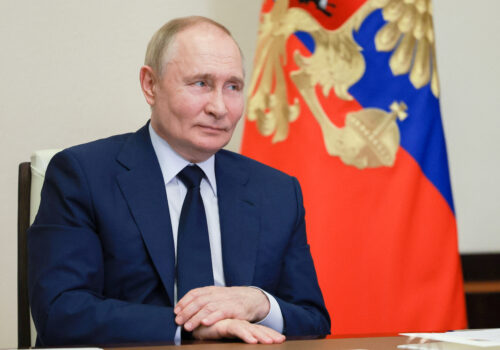
Belarus is often overlooked by the Euro-Atlantic policy-making community, with many taking for granted the relative stability represented by Belarusian dictator Alyaksandr Lukashenka during his three decades in power. In reality, however, today’s Belarus may soon reach a fork in the road that will force its people to choose between European democracy and Eurasian autocracy. The choice they make will have significant implications for Euro-Atlantic security. Articulating the possibility of a European future for Belarusians now can help shape their thoughts and actions when the time comes.
During the 1990s, some Russians claimed the dictatorial Lukashenka model was exactly what the troubled and oligarchic Russian Federation needed. Although always opposed to the Belarusian language and broadly aligned with Moscow, Lukashenka tenaciously maintained his independence when Vladimir Putin came to power in Russia, skillfully extracting benefits from both the Kremlin and the West.
This independence was severely undermined by the massive grassroots protests that erupted in Belarus in the wake of the country’s 2020 presidential vote. Large numbers of Belarusians believed reformist opposition candidate Sviatlana Tsikhanouskaya had won the election and took to the streets to protest. Lukashenka only survived thanks to Russian support. This left him far more reliant on the Kremlin and significantly reduced his room for maneuver.
In February 2022, Lukashenka allowed Putin to use Belarusian territory to launch his full-scale invasion of Ukraine. However, it soon became clear that things were not going according to Putin’s plan. Russia’s heavy losses during the initial weeks of the invasion restored some of Lukashenka’s independence, while disquiet in his own armed forces and some quarters of the security services convinced him that further direct involvement in Russia’s war would be folly. Since then, Lukashenka has provided training and equipment to Russian forces, but has resisted pressure to join the invasion.
Stay updated
As the world watches the Russian invasion of Ukraine unfold, UkraineAlert delivers the best Atlantic Council expert insight and analysis on Ukraine twice a week directly to your inbox.
Putin remains eager to exploit Belarus’s resources and strategic position to threaten Kyiv once more and to target Western supplies entering Ukraine from Poland. Belarus could also play an important role in the future, if Russia seeks to intensify hybrid hostilities against the Baltic states or to launch a direct attack. This looks unlikely as long as Lukashenka remains in power. The Belarusian dictator may therefore represent a status quo which fundamentally favors Ukraine and its allies more than Russia.
If Putin continues to fail in his immediate objective of occupying all of Ukraine’s Luhansk, Donetsk, Zaporizhzhia, and Kherson regions, there is a real possibility that he will ultimately lose patience with Lukashenka and move to either replace him or otherwise compel Belarus to join the invasion. Moreover, it is almost certain that Putin will attempt to secure Belarusian human and material resources if Lukashenka dies before him.
Many Belarusians already know what would await them if Putin fully incorporated and militarized their country. They would experience an oligarchic raiding of businesses, covert or overt mobilization, and the extinguishing of the traditionally Western-looking aspect that is an important part of Belarusian national identity.
In contrast, if Belarusians manage to maintain their independence and empower a reformist leadership, they can begin moving towards European integration, with European Union membership an eventual possibility. In this context, it is vital that all Belarusians, including political elites along with members of the military and security forces, receive assurances that they have a viable alternative to the Kremlin vision for their country’s future.
Eurasia Center events
Articulating a European future for Belarus does not need to entail talk of NATO membership. Instead, it should involve acknowledging the possibility of removing sanctions, enhancing access to EU travel, education, and capital, and eventually embracing Belarus’s modest population of 9.2 million people under democratic leadership and after deep structural reforms.
From a purely practical standpoint, European integration would not be an insurmountable task. Lukashenka’s repressive regime has actually resulted in relatively good infrastructure conditions for Belarusians, especially in rural areas, compared to most other former Soviet republics. Belarus boasts a highly educated and comparatively young demographic. Prior to the 2020 protests, the country had burgeoning IT and entrepreneurial sectors.
A Belarus free of Russian military entanglements and increasingly aligned with the Euro-Atlantic community instead of the developing Russia-China-Iran-North Korea axis of autocracies would contribute significantly to the security of Ukraine, Poland, and the Baltic states. A Belarusian geopolitical pivot toward the West could also encourage transformation inside Russia itself and compel more Russians to embrace a post-imperial identity.
Failure to articulate the possibility of a European future for Belarus leaves the Euro-Atlantic community at risk of being caught off guard without a plan when Belarus does, indeed, reach its fork in the road. This may come sooner than many are prepared for. By taking steps now to engage with Belarusian society, the EU can strengthen its own foreign policy credentials as a major geopolitical player, mitigate against the risk of a rapid Russian militarization of Belarus, and set the stage for a cooperative relationship with Belarusians in the years to come.
Richard Cashman is a nonresident fellow at the Centre for Defence Strategies.
Further reading
The views expressed in UkraineAlert are solely those of the authors and do not necessarily reflect the views of the Atlantic Council, its staff, or its supporters.

The Eurasia Center’s mission is to enhance transatlantic cooperation in promoting stability, democratic values and prosperity in Eurasia, from Eastern Europe and Turkey in the West to the Caucasus, Russia and Central Asia in the East.
Follow us on social media
and support our work
Image: Russian President Vladimir Putin and his Belarusian counterpart Alyaksandr Lukashenka attend a press briefing following their talks in Minsk, Belarus, May 24, 2024. Sputnik/Mikhail Metzel/Pool via REUTERS
